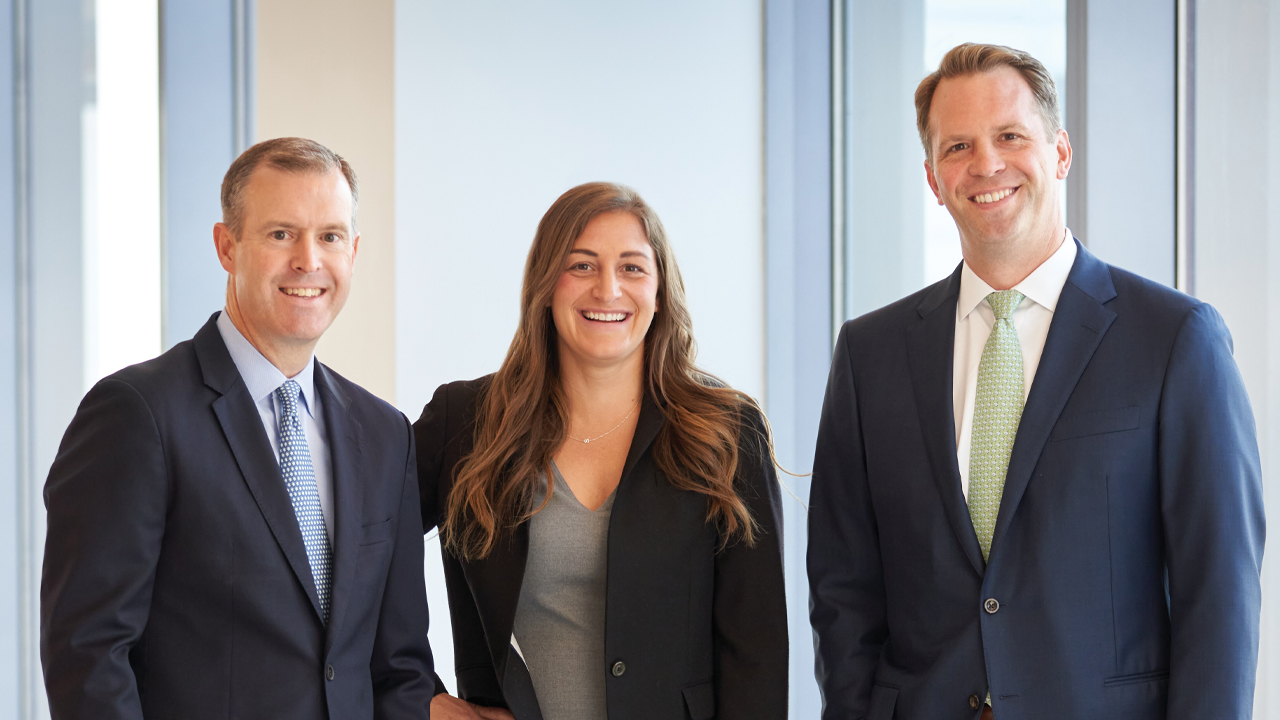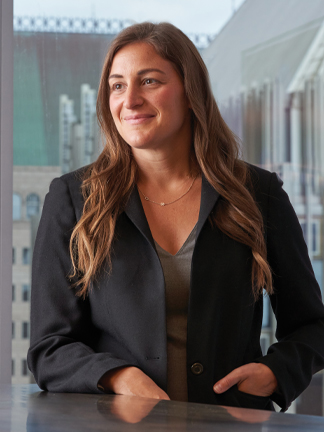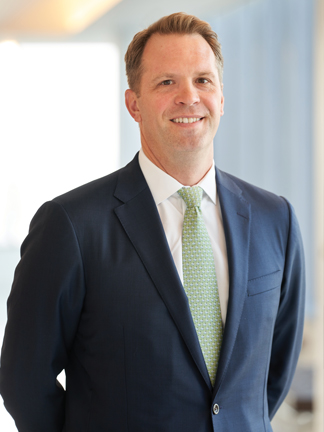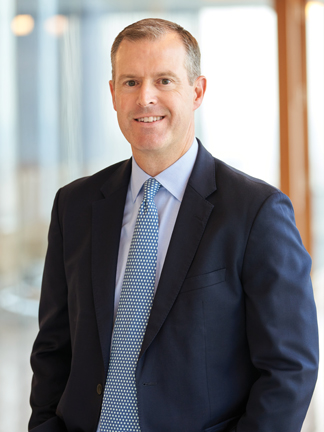The Value of an All-Weather Partner
Through challenging times and beyond, lenders with experience and a long-term view prove key.

When the COVID-19 pandemic erupted in the U.S. in March 2020, private equity firms and their portfolio companies were forced to swiftly pivot their attention to making sure they were on solid ground to ride out a storm of indeterminable length. Some companies were better positioned than others for what transpired over the next 18-plus months, though their experiences and levels of success during this unprecedented time were largely dependent on what sector they operated in. For example, businesses tied to in-person events and restaurants faced more prolonged challenges, while companies focused on do-it-yourself home improvement products or essentials for remote work were generally quick to return to a focus on growth.
With businesses experiencing varying degrees of hardship and paces of recovery, lenders were tasked with figuring out the best way to support each of their borrowers and sponsor clients. Twin Brook Capital Partners, a direct lender focused on providing cash-flow based financing solutions for the middle market private equity community, leveraged its strong relationships, deep credit expertise and wealth of experience in the mid-market to help companies and their PE sponsors through the initial disruption and beyond. Twin Brook’s strategy has proved to be an effective one, as demonstrated by the firm’s ability to simultaneously maintain stability across its existing portfolio and continue supporting borrowers and private equity partners looking to execute on new opportunities.
Relationships & Experience Matter

At the core of the Chicago-based lender’s strategy is a commitment to working with sponsor-backed companies in the lower middle market, which they define as businesses with between $3 million and $50 million of EBITDA, with an emphasis on those with $25 million of EBITDA and below. “The operational expertise and capital support sponsors bring to bear is extremely valuable—and I think this was really highlighted in the early months of the pandemic —but our reasons for exclusively working with private equity-backed businesses go beyond that. We’ve built longstanding relationships with many sponsors, partnering with them across a variety of portfolio companies and transactions over the years. Those regular and repeated interactions allow us to establish open lines of communication, mutual trust and clarity in expectations when it comes to working together; whether it’s a challenging situation or opportunity for growth, they’ve seen how we operate and know we’ll be there to work hand-in-hand with them,” says Betsy Booth, a director at Twin Brook.
Whether it’s a challenging situation or opportunity for growth, they’ve seen how we operate and know we’ll be there to work hand-in-hand with them.
Betsy Booth
Director, Twin Brook Capital Partners
Relationships are not the only thing that run deep at Twin Brook. Many members of the team have been focused on the lower middle market for decades, so the same can be said of their experience lending in the segment— both across industries and through cycles. Since inception in late 2014, the firm has closed more than 676 transactions with over 263 companies and 97 different sponsors. Reflective of the firm’s generalist approach, these deals span a broad range of industries, including but not limited to aerospace and defense, business services, distribution, education, financial services, general industrial/ manufacturing, healthcare, insurance, and software and tech-enabled services. “Our collective experience through past cycles has certainly informed Twin Brook’s approach as a firm, which I think positioned us well for this most recent contraction and certainly guided how we reacted,” says Chris Martin, a partner at Twin Brook. “For those businesses facing challenges, we were there early on, proactively working with their management teams and sponsors to come up with solutions that provided them with the time and liquidity needed. For companies seeing opportunities for growth—even in the early months of the pandemic, when many lenders were still internally-focused —we were there to help them execute on them.”
The Value of a Long-Term View

There are some sponsors that take a commoditized approach to selecting lenders, but there are others—particularly in the lower middle market and following the experiences of the last 18 months—that appreciate the value of deeper partnerships and a long-term view.
Bertram Capital—a private equity firm whose strategy for driving the growth and expansion of its portfolio companies is focused on reinvestment and technology enablement—is one of these sponsors. “We had a portfolio company that was challenged early by the shutdown of in-person locations at the height of the pandemic last year,” said Tom Beerle, a partner at Bertram. “Despite uncertainty about how long those shutdowns and their impacts on the business’s financial performance would last, Twin Brook was quick to jump into action, working with us to manage liquidity and providing the flexibility needed during that period.” As lockdowns eased, the company’s performance quickly bounced back.
Our collective experience through past cycles has certainly informed Twin Brook’s approach as a firm, which I think positioned us well for this most recent contraction and certainly guided how we reacted.
Chris Martin
Partner, Twin Brook Capital Partners
“Our relationship with the Twin Brook team goes back many years, and they are the lead lender on a number of our current portfolio companies,” continued Beerle. “We appreciate that they are always there and thinking about ways to support us, whether that entails proactively working through issues that may arise or helping us as we seek to execute on our value creation strategies for our portfolio companies. Because of our strong relationship, acting as a thoughtful and reliable partner, we frequently reach out proactively to Twin Brook for new opportunities in our pipeline.”
While the cost of capital is of course a factor, Beerle notes that choosing a lender based on that alone is a mistake. “The lowest cost lender has minimal overall impact on returns. It’s much more important that we partner with someone who thinks long-term like we do, has the dry powder to scale and support add-on acquisitions, and can be creative in problem solving.”

Jeffrey Goodrich, co-founder of High Road Capital Partners—a private equity firm focused on buying and building niche-leading companies in the lower mid-market—shares a similar perspective on lender selection and working with Twin Brook. “We had a company that was looking to do an add-on acquisition in the early days of the pandemic, which you may recall was a time when many lenders were skittish about deploying capital for new deals. Our portfolio company, General Tools & Instruments, wanted to buy Garden Weasel, a provider of specialized lawn and garden tools. Despite the significant level of disruption and uncertainty in the broader market at the time, we remained focused on the data and saw that the company was experiencing unprecedented and increasing customer demand for products, as people were spending on home projects, including gardens. Twin Brook understood why this acquisition was a good opportunity and the rationale behind it, and was there to provide the support we needed to close the deal in April 2020. We pride ourselves on being supportive of our portfolio companies—making sure they have the resources and tools they need to succeed—and we look for the same qualities in our financing partners, which is why we work with Twin Brook,” said Goodrich.
High Road sold GTI Holding Company—the parent company of General Tools and Instruments—for $115 million in January 2021, after the company’s revenue nearly doubled and EBITDA nearly tripled under High Road’s ownership.
Our commitment to playing the long-game and our patient capital—which supports our ability to do that—will continue to be key differentiators.
Pete Notter
Partner, Twin Brook Capital Partners
Looking Forward
Although the pandemic persists, there are already some takeaways that lenders and sponsors alike have alluded to. “I think one of the upsides of this past year and a half has been that we’ve seen growing recognition of the value of relationships and experience. Through this period, our strategy has remained unchanged, and I think our PE partners—many of whom are sophisticated investors that have similarly navigated multiple cycles—appreciate that consistency of approach and the level of reliability we bring to bear,” says Pete Notter, a partner at Twin Brook. “In today’s market and going forward, our commitment to playing the long-game and our patient capital—which supports our ability to do that—will continue to be key differentiators.”


